More academic repression: sports vs. academics
More academic repression. Jonathan Goldstein is a friend who is in trouble for protesting about the excessive number of people accepted at his college on the basis of athletics rather than academics. For this, he is being put through the wringer.
Jonathan Goldstein: Ward Churchill Redux? Copyright 2009 Inside Higher Ed
The professor writes something that rubs a lot of people the wrong way. That prompts administrators to look closely at his research methods, and they find errors that lead them to discipline him. No, not that case. This one is unfolding at Bowdoin College, and like many such situations, it evokes “Rashomon” in the conflicting versions of events recounted by the two sides. (Having some video of the events at issue would help, as will become clear.)
One of the few facts on which both parties agree is that Bowdoin is poised to punish a longtime professor of economics, Jonathan Goldstein, based on an investigative committee’s findings that he engaged in research misconduct (failing to cite sources) and used confidential data in the draft of a paper on his Web site last fall about the relative emphasis on intercollegiate athletics at Bowdoin and 35 other liberal arts colleges. The two sides also agree that the primary bone of contention in the situation is that Goldstein sought to distribute the paper to high school students and families visiting Bowdoin’s admissions office last fall.
On just about every other aspect of this case, Goldstein and Bowdoin officials differ wildly.
Goldstein and the Foundation for Individual Rights in Education, which has taken up his case, maintain that Bowdoin decided to investigate his research practices because the paper made the college look bad (ranking worst among 36 liberal arts colleges on measures designed to show overemphasis on athletics vs. academics). They also assert that the college and, especially, Cristle Collins Judd, the dean for academic affairs, were so unhappy with his views that they aggressively pursued action against him even after he admitted having made errors — ignoring evidence of unintentionality that should have scuttled the charges.
“Let us be clear: If Goldstein had not come to embarrassing conclusions in his paper and had not distributed his paper to the public audience (i.e., prospective students and their parents) he deemed most likely to be interested in his findings, it is difficult to imagine that Bowdoin would have investigated any of the claims filed and investigated by Judd,” Adam Kissel, a lawyer for the Foundation for Individual Rights in Education, wrote to Bowdoin President Barry Mills in February. “Choosing to investigate Goldstein for his paper sends a clear message to all faculty members who might reach similar findings: Embarrassing Bowdoin via scholarly research will lead to official investigation and threats of punishment.”
Bowdoin officials, meanwhile, accuse Goldstein of trying to cover up shoddy research practices by wrapping himself in the cloak of free expression. The professor drew scrutiny to himself, they say, not because he raised issues Bowdoin would prefer not to face — “issues of athletics are widely debated at Bowdoin,” says Scott Hood, a spokesman — but because of how he tried to raise them, disrupting admissions events and interfering with the work of college officials, including students leading campus tours. And once panels of Goldstein’s peers took a look at his work, Bowdoin administrators say, they were troubled by what they saw.
The “he said, she said” nature of the accusations is partially mitigated by a paper trail of documents, which tend to support Goldstein’s description of events more so than the college’s. But without that video …
Research Born of Frustration
Goldstein, who’s been on the faculty at Bowdoin for 29 years, is an economist with a specialty in economic statistics who derives his research topics from his surroundings and his passions. He has written about topics as diverse as the effectiveness of motorcycle helmets and the intergenerational supply of loggers in Bowdoin’s home state, Maine; in one case, an idea literally fell from the sky, as two pieces of paper dropped from the rafters as he was renovating his house led him to write about how women and members of minority groups were represented in “tobacco cards” (think baseball cards) that were distributed in packs of cigarettes in the late 19th century.
Goldstein said that changes he perceived among his students at Bowdoin — especially through surveys in which they reported studying less and spending more time on extracurricular activities, particularly sports — prompted him to look at the interaction of intercollegiate athletics and academics. That issue tends to be of particular concern to professors at colleges and universities that play big-time sports, and faculty whistle blowers over the years have generated controversies at the University of Georgia and the University of Tennessee, among others. But concerns about the balance between athletics and academics can be acute at Ivy League and other highly selective institutions that compete at less-visible levels of college sports, too — that tension was the subject of a pair of books co-written by William G. Bowen, Princeton University’s former president, in the last decade.
Last summer, using data drawn from a study conducted by Franklin & Marshall College, Goldstein posted on his Web site a paper that, among other things, ranked 36 private liberal arts colleges on a set of factors that “undermine or regulate the relative priority of the academic mission over athletic objectives — athlete-supercharged Millennial-induced grade inflation, percent of athletes, and the level of competitive experience of the [athletics director].”
The paper ranked Bowdoin dead last, but with other institutions “with strong academic potential, but that fail to live up to that potential … due to the pervasive nature of athletics and the failure to regulate athletics resulting in negative feedbacks on the academic mission.” The paper closed with a set of recommendations — warnings, really — to parents of prospective students at the colleges, urging them to think twice before spending tens of thousands of dollars a year for their children to attend the institutions that, by his reckoning, fail to regulate sports. “Parents considering such schools would be well advised to alternatively consider small colleges that appear at the top of my rankings,” he wrote.
He Said, They Said
One of Goldstein’s theses is that such parents and students need more accurate information about what really happens at these colleges, and that’s what prompted him, he says, to set off the chain of events that led to this conflict — events that are seriously disputed. On August 21, he went into a lounge in the student union where prospective students and their parents were gathering for an information session, briefly explained the purpose of his paper, and offered copies of a summary of it to those who expressed interest.
The next day, August 22, Goldstein says, he distributed the paper in the lounge of the admissions office and then walked with the students and families to the student union. There, an admissions official told him that the meeting was “private” and that he was not welcome; Goldstein’s response, he says, was to ask about the “free flow of information and ideas.” The professor distributed his materials outside the student union, and when he returned to the lounge, he found the doors locked, he says — excluding him, but also forcing several women who’d left the information session to use the restroom to get help from admissions officials to re-enter.
Bowdoin officials offer a somewhat different version of that day’s events. On the walk over to the student union, says Hood, vice president for communications and public affairs, Goldstein spoke to students and families even as a student tour guide encouraged them to ignore him, “inappropriately interfering with college empoyees who are trying to do their jobs.” When the admissions official asked Goldstein to stay out of the meeting in the student union, the professor told the Bowdoin employee to “bust me,” Hood says. He also disputes Goldstein’s assertion that Bowdoin locked him out. “The door was not locked,” Hood said in an e-mail message. “The ‘door’ in question … is actually two very large wooden sliding doors. They are old, they are heavy, and they sometimes stick.”
The bottom line, Hood says, is that Goldstein behaved “in a very disruptive manner,” and the college’s problem is not with the nature of the ideas he sought to raise, but that he did so in a “time and place that was simply inappropriate.”
That, Hood says, is what led academic officials at Bowdoin to get involved. On August 25, a Monday, Goldstein says, Judd, the dean of academic affairs, called him and told him to be in her office in 20 minutes. Goldstein had a previously scheduled appointment at that time, but he didn’t stop there, he acknowledges; “I said, ‘Remember 11 months ago when we were going to talk about my salary and we never did? Get lost,’ ” he recalls telling Judd.
That morning, after distributing a few more copies of the summary at the admissions office, Goldstein left town for the rest of that week. While he was away, Judd sent him e-mails and had letters delivered informing him that he was being investigated on charges of harassment and creating a hostile work environment, and that his “research methods” might warrant review, too. At a meeting in mid-September with Judd and Tama Spoerri, the college’s director of human resources, Goldstein learned that the college would also review whether he failed to follow “the protocols outlined by the Research Oversight Committee,” according to a letter Judd wrote him after the meeting. Two weeks later, the dean wrote to tell Goldstein that an “inquiry committee” — which under Bowdoin’s disciplinary procedures, like a grand jury, decides whether to file charges — would examine his potential failure to cite sources and plagiarism.
Over the next two months, charges came and went. On October 17, Judd wrote to tell Goldstein that Spoerri had concluded that, while he had failed to treat colleagues with respect and proper protocol, the professor had not harassed anyone. (The dean’s letter cites what she calls a “pattern” of dealings with colleagues — notably Goldstein’s telling her to “get lost” — that “disregards the basic standards of civility,” and requires him to complete and pass an online harassment prevention course within two weeks. It also suggests anger management courses.)
Several weeks later, the three faculty members on the inquiry committee concluded that the academic misconduct charge against Goldstein was of “sufficient substance” to warrant a full-blown review by an “investigation committee.” The inquiry panel expressed several caveats, though: first, that the “document at the center of the allegation” — Goldstein’s paper — “is potentially somewhat embarrassing to the college,” and second, the “possible perception of a conflict of interest,” given that Judd was both the person who brought the case against Goldstein and, under Bowdoin’s policy, the person charged with deciding whether to accept the inquiry committee’s recommendation to proceed.
The panel also urged Judd, in deciding whether to form an investigative committee, to consider whether Goldstein’s paper had indeed been “published” and whether the flaws in it were more than “honest errors,” which Bowdoin’s code requires they be to warrant punishment. Judd seemed to have no qualms; she informed Goldstein in a November 18 letter that an investigation would proceed into charges of plagiarism and failure to cite sources.
Goldstein acknowledged to all who asked that the paper he had posted on his Bowdoin Web page last August did not identify the original source of its material about student grades, which came from a study at Franklin & Marshall College. (It included a citation that “[n]on-estimated figures are derived from official sources.”) But in documents he submitted to the investigative committee in his defense, he argued that the paper was clearly a draft that should not have been considered “published” under the standards in Bowdoin’s Faculty Handbook. “It is routine in my discipline to place unpublished drafts of papers on the Internet as part of the process of the development of ideas/research,” he wrote. And he cited other evidence (handwritten notes, e-mails to colleagues) to argue that he had always intended to identify the source of the material.
The Verdict, So Far
Last Friday, the four-person investigative committee — which included three Bowdoin professors and a Colby College professor who is a Bowdoin alumnus and former member of its Board of Trustees — weighed in, dismissing the plagiarism charge but concluding that he had committed misconduct by failing to fully cite the source of the grade data despite having characterized the paper as “complete and fully documented.”
The panel also added a third finding that had not been among the inquiry committee’s original charges: “violations of confidentiality.” The Franklin and Marshall study from which Goldstein took the grading data, the panel found, contained a line at the bottom that said: “This information is not available for distribution or replication outside of the participating institutions.” Goldstein, the committee noted in its letter, “alleges that he never saw the warning sentence at the bottom of the page, and that none of the three others who helped him compile the data saw it either. We find those demurrers to be irrelevant.”
The committee deemed those to be “serious offenses” and recommended punishment: a letter of censure warning that “subsequent, similar offenses would yield more severe sanctions.” The proposed penalty was mitigated, the panel added, by several factors, especially “the difficulty we have encountered in establishing intentionality in this matter…. [T]he distinct possibility that these actions were not intentional should be a mitigating factor in the application of sanctions.” The Faculty Handbook specifically exempts “honest error” from the definition of research misconduct, Goldstein and FIRE’s Kissel say.
Like the inquiry panel, the investigative committee also raised questions about Judd’s potential conflict of interest and recommended that she “withdraw from final determinations … if those actions extend beyond the sanctions recommended here.”
“Despite the technical language of the Faculty Handbook that seems to tolerate the dual role of complainant and judge for the Dean of Academic Affairs, we do not think that basic fairness is accomplished when one person performs both roles. … Dean Judd has vigorously prosecuted this case. We do not believe it is now in the best interest of the college for her to be its final judge.”
After the investigative committee made its report, Judd informed Goldstein that she would now recuse herself, turning the panel’s recommendations over to President Barry Mills to accept or alter. Hood, the Bowdoin spokesman, says that the college’s lawyers had concluded that the dean would have violated the Faculty Handbook if she had stepped out earlier in the process, despite the two panels’ interpretations to the contrary.
— Doug Lederman

 25 – The Confiscation of American Prosperity: From Right-Wing Extremism and Economic Ideology to the Next Great Depression
25 – The Confiscation of American Prosperity: From Right-Wing Extremism and Economic Ideology to the Next Great Depression 30 – Manufacturing Discontent: The Trap of Individualism in Corporate Society
30 – Manufacturing Discontent: The Trap of Individualism in Corporate Society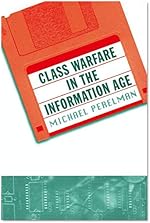 Class Warfare in the Information Age
Class Warfare in the Information Age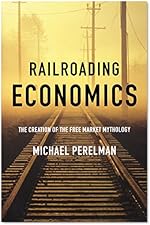 Railroading Economics: The Creation of the Free Market Mythology
Railroading Economics: The Creation of the Free Market Mythology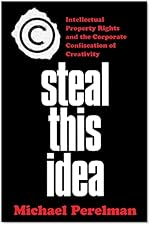 Steal This Idea: Intellectual Property Rights and the Corporate Confiscation of Creativity
Steal This Idea: Intellectual Property Rights and the Corporate Confiscation of Creativity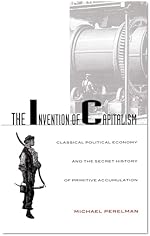 The Invention of Capitalism: Classical Political Economy and the Secret History of Primitive Accumulation
The Invention of Capitalism: Classical Political Economy and the Secret History of Primitive Accumulation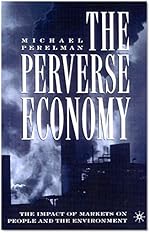 The Perverse Economy: The Impact of Markets on People and the Environment
The Perverse Economy: The Impact of Markets on People and the Environment
“Football has as much to do with education as bull fighting does with agriculture.”
Elbert Hubbard u.s. citizen who later died on the Lusitania.
“To win you must cheat, i refuse to cheat.”
the President of the University of Chicago when announcing the end of competitive football at that institution in the 1930’s.
[…] More academic repression: sports vs. academics « unsettling economics […]